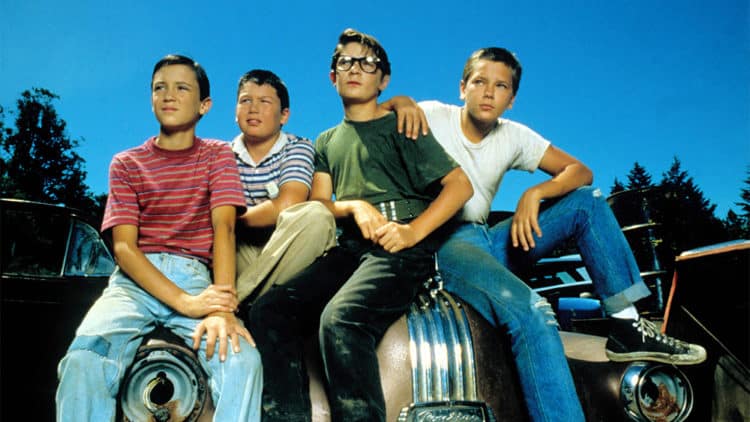
With the peach currently blossoming, the weather getting warmer, and people’s clothes getting lighter, one can finally assert that spring is finally on its way. This means – global pandemic permitting – that summer is just around the corner, along with all the promise that the season brings. For young people especially, long summer periods – with no school, no job and no responsibility – can mark the last carefree era of their lives as well as a time where the adult world comes violently crashing in.
Today we are looking at films that explore the summer that changed everything, where childhood slowly turned into adulthood or an event happened that changes ones perspective completely on life. The most exciting thing about the films we have picked for this list is that they are all from different countries, spanning all the way from the USA to France to Sweden to Mexico to Lithuania, displaying how the summer genre is a truly universal phenomenon. Spanning from horny teenagers to kids brushing up against the harsh realities of the real world, our list is sure to make you wish that summer comes even sooner.
Read on to see which summer hits we have included on our list. Do you think that there’s anything particularly great that we should’ve included? Please let us know in the comment section below.
Summer With Monika
Summer is often associated with sexual awakening. After all, for young boys and girls, it’s a time where you can see the objects of your desire without any clothes on. This is best expressed through one of Ingmar Bergman’s cheerier films, Summer With Monika. It tells the story of a young man named Harry (Lars Ekborg) who elopes with the sexually liberated Monika (Harriet Andersson) to an island just outside of Stockholm.
Released in 1953, it was one of the first major films to contain scenes of full-frontal nudity and was repackaged in the USA as an exploitation film. Nonetheless, the film’s simplicity in expressing sexual desire and the great feelings that it can bring during the height of summer, assert it as a true landmark of the genre. For follow up watching, Bergman’s Summer Interlude, made two years earlier, is a little heavier, but still depicts a summer relationship with nuance and pointed heartbreak.
Stand By Me
Based on the novel by Stephen King, Stand By Me is the quintessential American 1980s coming-of-age story. Telling the story of four young boys who go on a hike only to find a dead body on the tracks, it pays homage to the kind of friendships that only exist in youth as well as those long summers where everything feels possible.
It’s set in the 1950s, and is overlaid with nostalgia. Our four boys are played by Will Wheaton, River Phoenix, Corey Feldman and Jerry O’Connell, who talk, spar and play games almost like real teenagers, the film able to capture a real sense of teenage life despite its artificial genre trappings. This is thanks to the intense rehearsal and games that director Rob Reiner put the young boys through. Therefore, when they were captured in long takes, they could act naturally together, making Stand By Me such a charming, naturalistic feeling film.
Y Tu Mamá También
Alfonso Cuarón’s deeply horny Y Tu Mamá También is teeming with energy, seemingly coming out of the two young protagonist’s strong desire to really experience life in all its forms. The two men, played by Gael GarcÃa Bernal and Diego Luna, dream of having sex with as many women as possible and travelling to the beach. This dream is somehow realised when they meet the older Luisa, who accompanies them on a journey to a fictional beach they just made up.
A road trip seemingly without any aim, Y Tu Mamá También is a frank experience – especially when it comes to sex – that takes a long, mysterious journey in order to uncover some real truths about life. Caught with outstanding long takes, the film also takes the time to show the backdrop of Mexico during this era, showing that behind all the carefree shagging and drug use, there are still very serious things going on in the background.
Pauline at The Beach
No director was ever quite as attuned to the passing of the seasons as Eric Rohmer. From the snowcapped countryside of My Night With Maud to the frosty A Winter’s Tale to the Paris-in-autumn-look of The Aviator’s Wife, his films are always part and parcel of the seasons they depict. His summer films are particularly brilliant, including the romantic dilemma of A Summer’s Tale and the existential searchings of The Green Ray. But the one most in tune with this genre has to go to Pauline at The Beach, which depicts one girl’s summer where all innocence seems irretrievably lost.
The third in Rohmer’s “Comedies and Proverbs” series, the film stars Amanda Langlet in the titular role as a young teenager vacationing at her cousin’s house near the beach. Inexperienced in both live and love, she gets a bitter schooling through both her own romantic dalliances and through observing the experiences of others.
The Summer of Sangaile
In LGBT cinema, the summer and the potential it brings for lust and romance is particularly pronounced. Think of the languorous summer days in the quite apposite Call Me By Your Name and Stranger By The Lake, which help character’s desires really come to the fore, albeit in very different ways.
The Lithuanian film The Summer of Sangailė is no exception, a tale of lesbian love between two young girls that is as delightfully handled as it is truly profound about matters of love. It tells the story of one girl (Julija Steponaityte) who dreams of being a stunt pilot but lacks any real self confidence. Things change however when she comes into contact with the more confident Austé (Aisté Diržiūtė) who convinces her to believe more in herself. A wonderfully exploration of how love can completely transform a person, The Summer of Sangaile is an underrated gem that deserves more credit for its unabashed optimism.
 Follow Us
Follow Us





